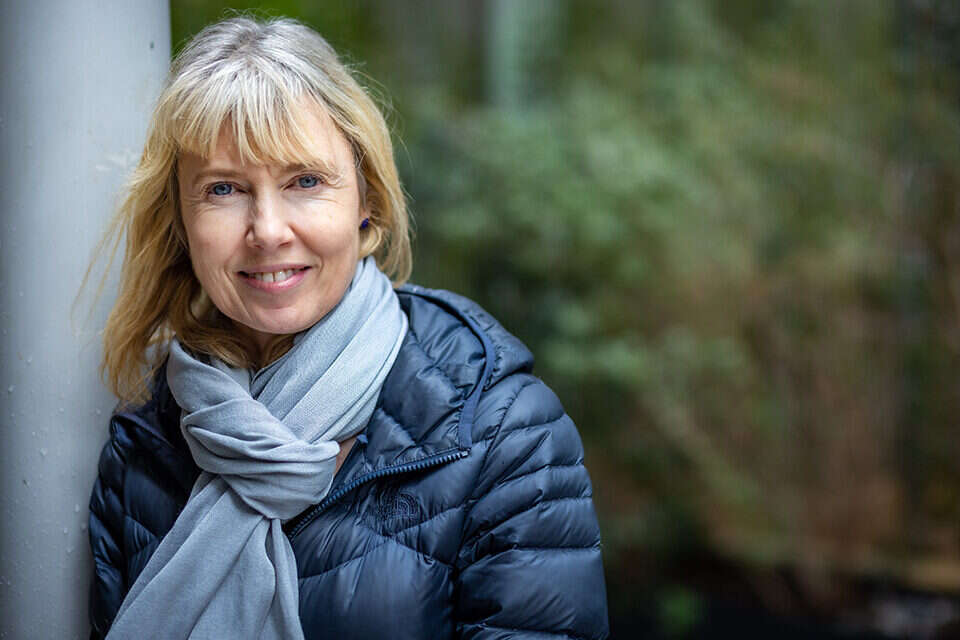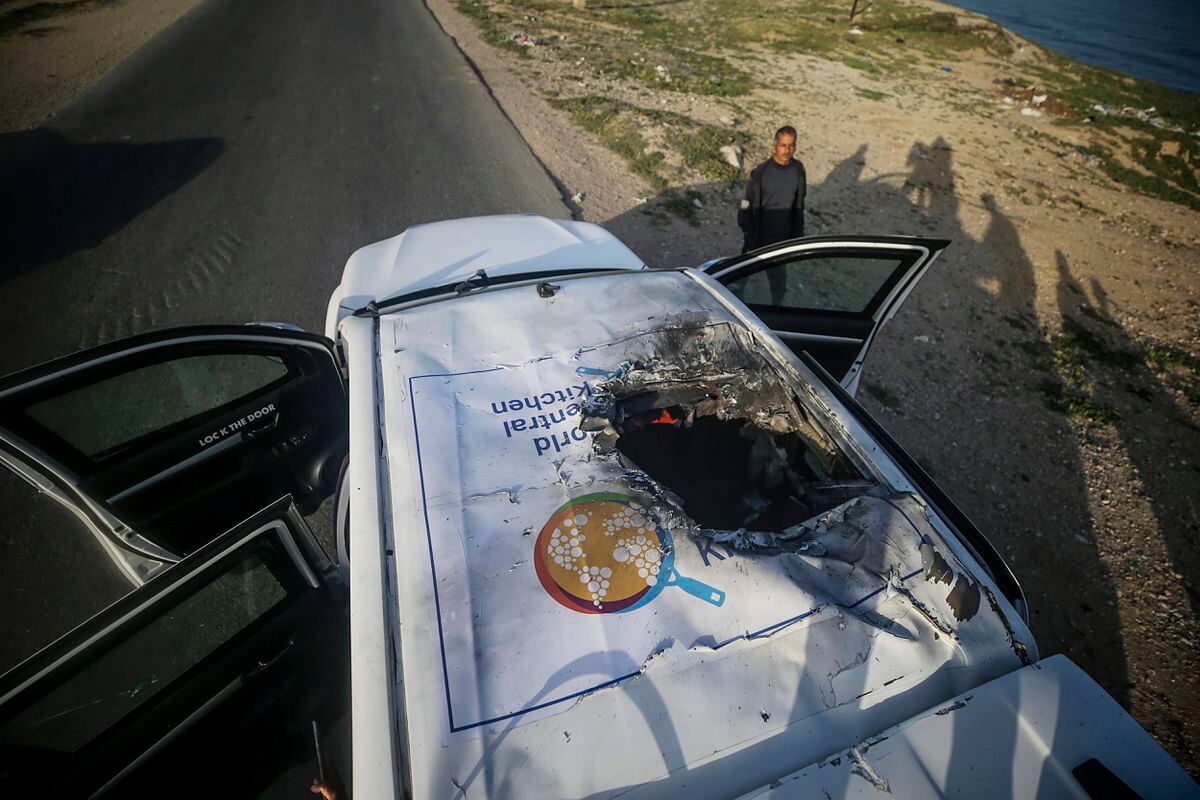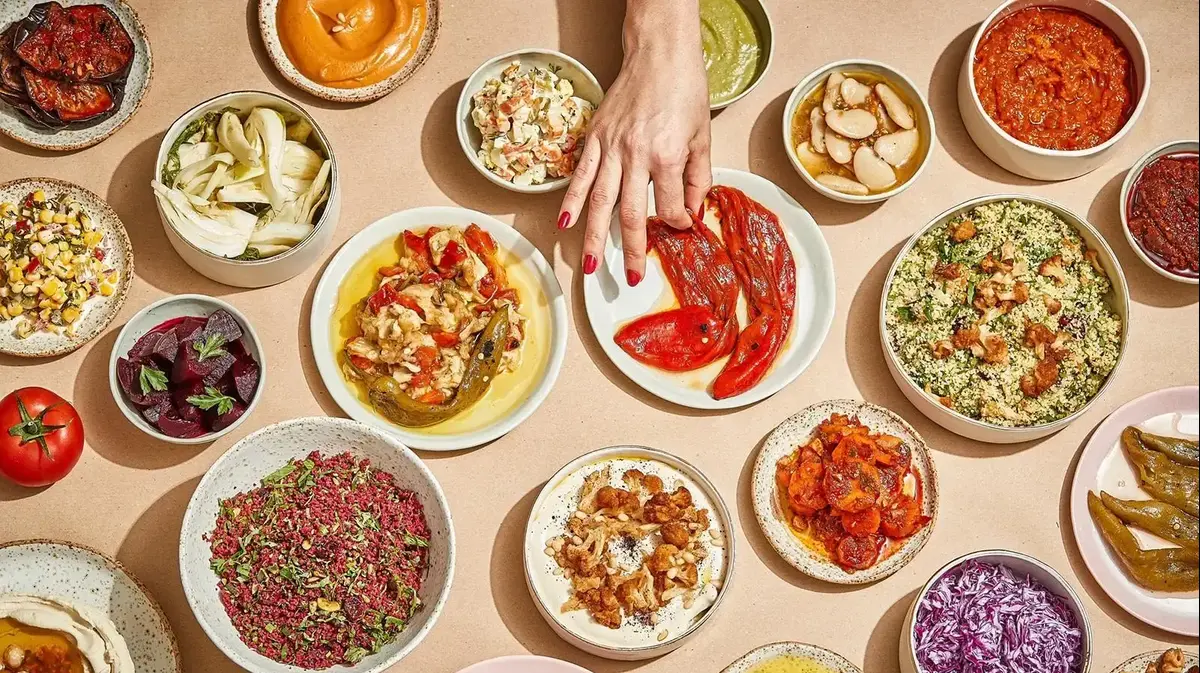Annabel Ebbs was 10 years old when her father, the poet Peter Ebbs, informed her that she was actually part of an experiment.
The man who grew up in a pious family, where the holy books were a source of education, cultivated admiration for the Goths and replaced the words of the prophets with those of the philosophers.
Annabelle, who was born when he was only a 21-year-old student, was raised according to the teachings of Jean-Jacques Rousseau, the 18th-century French philosopher, who was known, among other things, for his thoughts on politics and education.
The Ebbs family then lived in a small village on the coast of Wales, without a car, telephone or central heating, but with vegetables and animals in the yard.
Annabelle and her two younger brothers were homeschooled, and to this day she remembers how dad took them to the first demonstration in their lives to protest that no bus entered their village.
The only surviving illustration of Eliza Acton,
When she was 30 years old, she began diving into Rousseau's writings and biographies to check who the man was and what the materials were in the light of which she was raised, and how much of all of this was imprinted on her.
When she met the dark sides of the French thinker, she lost interest in him and turned all her attention to Thérèse LaVasser, who was his maid and lover and the mother of his five children, whom she was not allowed to raise.
Research out of curiosity and anger
"To a certain extent, my mother was also like that," she said a few years ago in an interview, "she took care of all the household chores, from growing the food, through cooking, to taking care of the children, while my father devoted himself to the creative life."
This enlightenment, which gave rise to her curiosity and anger, led her to dive into the lives of women who were missed by the spotlight of life, as she moved between documentary writing based on impressive in-depth investigations and fictional writing.
Her debut novel, "The Joyce Girl", was published in 2015 and was dedicated to the dancer Lucia Joyce, daughter of the celebrated Irish writer James Joyce.
Her second novel, Frida: Lady Chatterley, told the story of Frida Weekley, wife of Ernest Weekley, who lived with the writer D.H.
Lawrence.
After that she published a feminist investigation of walking in wild landscapes, examining the role of walking in the lives, writings and art of creative women - books that received success and rave reviews.
Book cover, photo: none
Ebbs' third novel, published in the fall of 2021, is her first book to be translated into Hebrew (translation: Katia Benovich), under the name "Miss Eliza's English Kitchen".
It was published by Techelet, and within three months it was a bestseller.
The book is dedicated to Eliza Acton, a poet and playwright who lived in Victorian England, and life forced her to accept the offer of a publisher who refused to publish her poems, and instead sent her to write a cookbook.
"Singing is not a suitable occupation for a lady," he informed her.
The fact that she had previously published books of poetry did not make any impression on him.
"No one is interested in poetry now. Go home, write me a cookbook, and maybe we'll come to an agreement."
Angry and offended, she returned home.
"You went too far in your previous book," her mother slapped her, "this exposure made some of our neighbors stare at me. You shouldn't have published them in your name, in our name, dear."
And while Eliza tries to hold back the tears, the father of the family enters the house shaking and upset, and informs them that he has been declared bankrupt.
The father fled abroad from the terror of imprisonment, and Eliza, who was the eldest and the only one of her sisters who did not marry, found herself in a house where the creditors had been emptied to the last fork, leaving behind only a few books of poetry and a sack of shame. So she got into a carriage with her mother all the way from Ipswich to the county of Kent, away from gossiping eyes.
There, due to the constraints of life, Eliza Acton's 576-page cookbook, which was published in 1845 under the title "Modern Cooking in All Its Branches: Condensed into a Simple Method, for the Use of Private Families," was cooked for ten years.
The book, which was published in an era when cookbooks offered only general descriptions - did not dwell on trifles such as quantities, cooking times and baking - was an immediate success, and within two months the first edition sold out.
It sold more than 125,000 copies and was published in Britain and around the world, and with each new edition Acton planted minor changes in it.
At the same time, she started working on her bread book, which was published in 1857 and was the first cookbook dedicated to one specific food.
Investigation and scraps of facts
"This work of fiction is based on a handful of known facts about the lives of poet and cookbook pioneer Eliza Acton and her personal assistant, Anne Kirby," Ebbs writes at the beginning of the book, just before the delightful dive into her novel begins, in which the chapters are divided between Eliza's and Anne's perspectives .
The characters, like all plot details, are committed to investigation and scraps of facts collected by the author.
From the flow of the plot grows a delightful lesson in history, about the years when the gap between the rich and the poor deepened, and the industrial revolution took women out of the home kitchens and into the factories.
Street food - from steamed potatoes to oysters, which were poor people's food at the time - slowly replaced English cooking, which in those years began to gain a bad name.
Vavs, a writer with extraordinary abilities to describe smells, stimulates the nostrils between stench and great perfume and between hunger and satiety.
Aktan's book, photo: None
Ebbs came across Acton's book in a collection of antique cookbooks she received as a gift from her mother-in-law, a cooking teacher who collected them years before it was popular.
I ask her what about Acton's character made her dedicate five years of her life to this woman.
Go on a world-wide hunt for every word or fragment of memory left behind.
A woman whose death certificate summed up her entire career by saying that she was the daughter of a drunkard owner.
"Acton had never cooked before," she begins to enumerate the reasons with burning eyes, "like every woman of her time, she taught herself. She entered the kitchen at a time when no decent woman would allow herself to do so. The level of her writing, which over the years earned the Her book with the title 'The best cookbook written in England', her understanding that a cookbook must be made useful, explaining how long in the oven, at what temperature, explaining the processes, and her decision to sign the book with her full name - all these were dizzying innovations at the time. If a woman published then A book, of course if it's a cookbook, she signed it as Lady, or some kind of adjective like that. Eliza signed it with her full name, not even initials."
And there was also the innovation of writing the list of ingredients, including quantities - a dizzying innovation at the time that appears at the end of the description of the preparation.
The person who signed off on elevating the list of ingredients above the method of preparation is Mrs. Isabella Mary Beaton, who was married to a publisher of Jewish origin and in 1861 published "Mrs. Beaton's Book of Household Management". This cookbook received enormous publicity, and it includes at least 900 recipes A third of them were taken without permission, and certainly without credit, from Eliza Acton's book. "She died at the age of 28 from syphilis," whispers Ebbs, and in her smile there is some lesson about reward and punishment.
Kosher lessons from Mrs. Montefiore
We met at "Assif", the center for food culture in Israel.
On the loudspeakers, Ofra Haza Sara sang that she had blossomed, providing a counterpoint to the scream of the storm raging through the windows.
On the table was a wonderful Yemenite chicken soup made by the musician Shai Sabri, and even the steam rising from it could not match the smells of Eliza's kitchen - smells of dried spices, pickled peaches, roasted eels in sage, boiled swan eggs, the smells of the curry made from the spices sent to them by Mr. Arnett, the aforementioned spice importer In the introduction to one of the recipes, and in Ebbs's novel, an affair is woven around his character that is almost ripe for marriage.
Eliza, who shows affection for him, decided to give up.
But not before Ebbs creates a scene for her in his home kitchen with Louis, a French chef, who hurls a series of insults at her and the English kitchen.
And she, who in her youth lived in France, from which she returned full of kitchen memories, and according to scraps of facts probably also with an illegitimate child, does not remain indebted and answers to him.
A Victorian kitchen that became a hit.
From "Downtown Estate", photo: Public Relations
"At that time, it was very common for illegitimate children to be handed over to a sister or other family member who maintains a family life," Ebbs explains.
"No one knew about this and nothing official was written. Eliza did not leave a will. On the other hand, we know that she had a niece who benefited from estate funds whose source is unknown. When Eliza died at the age of 60 from 'premature old age' - as they called dementia at the time - she did not left behind letters or a diary. It was probably her sister who emptied the house of all written evidence of the secrets of her life. "We know she was there, because she was the one who signed the death certificate.
Unlike today, at that time, and unlike poetry books, a successful cookbook made you a rich woman.
And she was single, so there was no man who could take her money.
"I don't think Eliza wanted to get married. As a woman, if you had your own money, why would you get married? Why would someone take everything from you? It was best to be a widow inheriting all of her late husband's money. A single woman would be asked what was wrong with her, a bit like Today," she laughs.
Ebbs herself (58) has four children, a son and three daughters.
One of them even completed a year of volunteering at MDA, and she was the one who told her mother that she had nothing to fear from coming to Israel, that it is much less dangerous than what is depicted in the news.
When I ask her if Eliza was a beautiful woman, she says she really has no idea and shows me the only portrait that has been preserved, which her friend took to Australia, where it still hangs in some private house.
The portrait was painted in her early 20s, somewhere between the two poetry books she published.
"She was then a romantic girl who had not yet gotten her hands dirty in the kitchens," Abs concludes, and her blue eyes momentarily mirror Eliza's.
The hours Eliza spent in the kitchen, as well as the fact that she was working on a cookbook, are another secret her mother begged her to keep.
A fair woman's place in Victorian England was in the armchair with embroidery in hand or at the piano.
Certainly not in the kitchen.
"Kitchens were dark, cold and dirty places. The heat of the fire invited all the rodents to it. In medieval England, the lords lived in houses surrounded by fields, and that was a different story."
The only time Eliza allowed herself to share her love of cooking occurs when she meets Mr. Arnett, the spice merchant who asks for permission to expand her spice treasure.
And when a package arrives with bundles of spices from all over the world, Ann and Eliza go into the kitchen to cook curry.
Like the recipe for Brussels sprouts, which according to food researchers first appeared in the book "Modern Cooking", so does the recipe for the curry stew.
"England was filled with raw materials that came from its colonies," Ebbs explains the importance of the matter, "mainly from India. Men came back from there with all kinds of spices and asked their wives to make curry for them, as if an English woman had any idea what they wanted from her."
And how is the recipe?
"This curry is a bit strange, but not bad," says Ebbs, who as mentioned has tried all the recipes in the book, some of which, along with Eliza's songs, appear at the end of the novel.
"Her kitchen is full of meat and fish recipes, mainly those that grow in rivers and have long since disappeared from the English pantry. Recipes for internal parts, some of which appear with credit to Jewess Montefiore, who taught her a chapter on kosher laws."
Montefiore published the first Jewish cookbook a year after the publication of "Modern Cooking", which in the spirit of the time was very limited in details and methods of preparation and signed only with the name "Lady".
The character of Montefiore, another woman whose shadow of her husband sins for the role she filled, receives special treatment in the novel that describes meetings and shared meals between the two, conversations about kosher rules and dairy-free desserts.
Ebbs says that she was surprised by the accuracy and standing of the recipes, including simple and wonderful ones, such as celery on toast, which she has no idea how and why they disappeared from the English kitchen, and only in recent years have they begun to dig into the past, to revive lost dishes.
How do you explain Eliza's preaching of cooking fresh and nutritious food?
"She was exposed to poverty, to the damage that bad food does to the skin and hair. She connected the two. She was a sharp, smart woman, with open eyes, who know how to observe."
You love her, huh?
"Of course, how could you not."
Macaroni a la Reine
We prepared Eliza Acton's recipe for macaroni and cheese baked in the oven
In the 19th century there were several foods that answered to the name macaroni.
In any case, it is a short and hollow pasta.
Eliza writes in her book that she uses straight pasta and recommends using young white cheese, which melts well, and avoiding parmesan.
I went for young Gouda.
To choose the mold, decide if you feel like going for a deep or flat and wide mold like I chose - one that increases the crispy part of the dish, which has been the star in homes for many years and appeals to the low common denominator of so many families and kitchens.
I did not touch the original recipe, except for changes concerning the modern oven.
The amount is good for 4 people.
Victorian Enid Ciz macaroni, photo: Itiel Zion
the ingredients:
√ 250 grams of macaroni
√ 750 grams of sweet cream
√ 280 grams of young Gouda or Cheddar
√ 50 grams of butter
√ A pinch of silk
√ A pinch of cayenne pepper
√ A pinch of salt
Preparation:
Heat an oven in grill mode to 180 degrees.
Cook the macaroni in a pot of boiling water with salt, and drain.
Meanwhile, in a saucepan over medium heat, bring the cream to the boil.
When the cream starts to bubble gently, lower the heat.
Grate in the cheese and add the butter and spices.
Pour the sauce over the macaroni, mix well and put in the pan.
Cover with a thick layer of breadcrumbs and bake until browned.
were we wrong
We will fix it!
If you found an error in the article, we would appreciate it if you shared it with us






/cloudfront-eu-central-1.images.arcpublishing.com/prisa/CRIQFD7SNS67BN5M2KXT3ADXQI.jpg)








